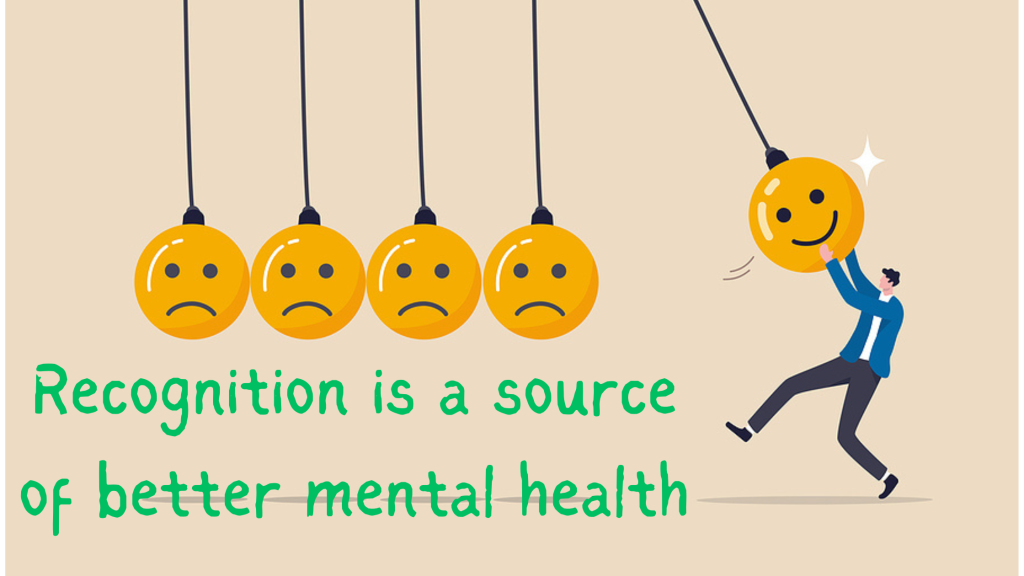A while back, Robert Manolson of Powerful Play Experiences shared a video from the Mental Health Commission of Canada that identified recognition and reward as one of 13 factors that support psychological health and safety in the workplace.
Other factors that are allied to recognition include engagement, organizational culture, civility and respect, and clear leadership and expectations.
After viewing the video, I met Robert to discuss how recognition contributes to better mental health at work.
I began by asking Robert how he would describe himself. Is he a mental health advocate?
He said he prefers to identify as a mental health optimist. He explained that mental health optimists are able to face defeat and adversity and find ways to deal with it.
“Mental health optimists choose not to be consumed by it. We surround ourselves with support networks,” he said.
“We are resilient. We move on. We look for healthy ways to maintain our daily personal wellness.”
During our conversation, Robert emphasized that who we are and what we do shapes the mental health of others. “An amazing gift that’s never talked about is how what we do can shift people’s mental health from good to better,” he said.
He illustrated this point by describing what happened when he ordered a cappuccino at the cafe where we met.
It was a pleasant experience. The person behind the counter greeted him with a smile and engaged him in a brief conversation while taking his order.
“How staff treats me changes my mental health,” he said. “When we serve people, we don’t realize the impact we can have on people’s state of mind. What if I made one person feel better?”
Shifting to the purpose of our conversation, he says, “Staff recognition is good for mental health. By acknowledging others and expressing appreciation, we show we care about the other person and the role they play in the organization.”
Recognition can changed an individual from feeling, “I’m not good enough,” to feeling that “someone feels I’m important.”
A manager or supervisor who recognizes a staff member is saying, “I care about you, you have value, you make an important contribution.”
He added, “No one ever says, ‘We’re here to improve your mental health’ at recognition events, but when done correctly, that’s what recognition does.”
Robert believes that as a legacy of the COVID-19 pandemic, “There is an increased awareness of mental health, but awareness is not enough.
“No one is immune from dealing with mental health challenges. Everyone is going through something, everyone has come through something, everyone will go through something,” he said. “Action is required. We need to do something.”
To address this need, Robert has developed a 60-day program that provides leaders with a three-stage action plan to reclaim positive mental health in the workplace.
This involves re-prioritizing self-care and personal well-being at work, rethinking psychological health and safety at work, and recommitting to team rebuilding and fun at work.
And one expects, emphasizing the value of recognition in the workplace.
==
Thanks, Again! More Simple, Inexpensive Ways for Busy Leaders to Recognize Staff includes hundreds of low-cost/no-cost, easy-to-implement staff recognition tips, tools and techniques to express appreciation to staff members for how they contribute and what they achieve. Thanks, Again! will officially launch in the fall but you can receive early access to autographed copies of the book and other valuable perks.

